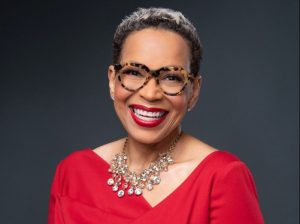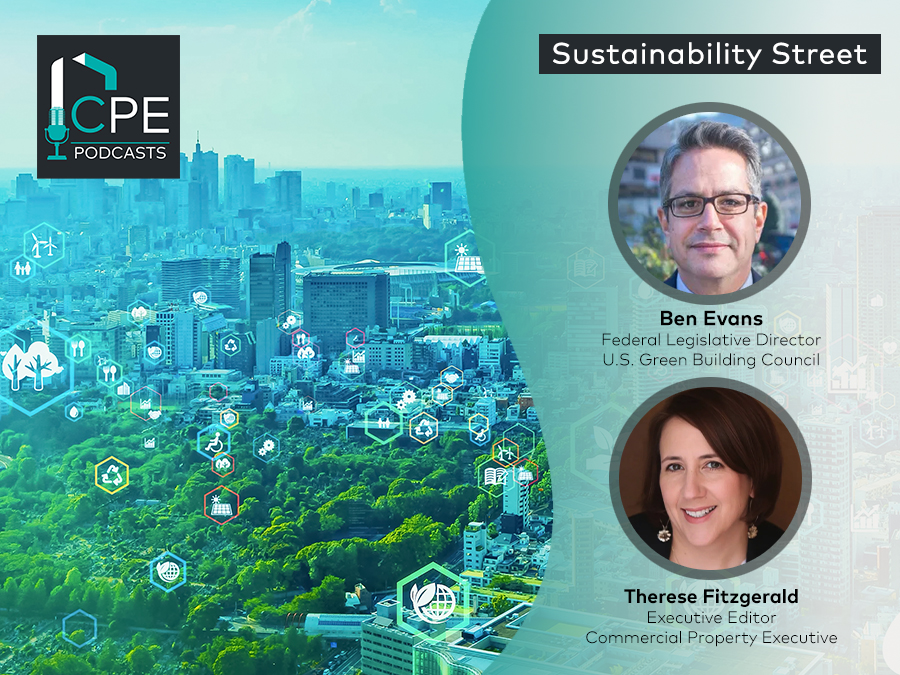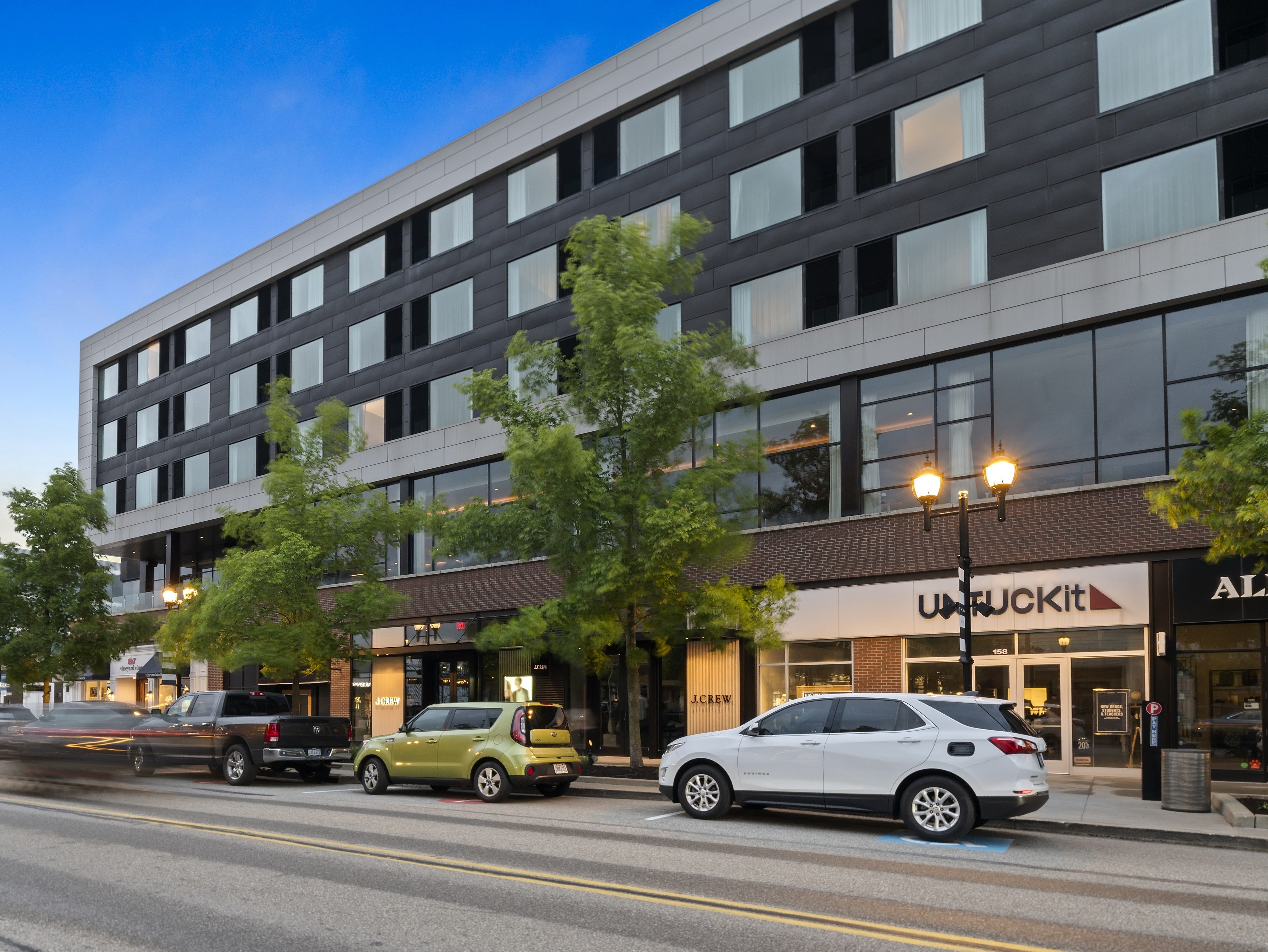The Role of Education in Advancing DEI
In light of Black History Month, Collete English Dixon discusses the importance of education in providing a more diverse future for real estate.

Collete English Dixon, Executive Director, Marshall Bennett Institute of Real Estate. Photo by Elle Forte Photography
Commercial real estate is making progress in addressing its shortcomings related to diversity, equity and inclusion, and education is a fundamental step of that process. As the industry grows and evolves, advancing DEI principles is becoming a top priority for real estate education institutions.
As Commercial Property Executive observes Black History Month, we reached out to Collete English Dixon, the first African American woman to lead a university-based real estate education program in the U.S.
Within the Marshall Bennett Institute of Real Estate at the Heller College of Business at Roosevelt University in Chicago, English Dixon is the executive director and the administrator of all real estate academic and student programs, including two graduate degrees—Master of Science in Real Estate and Master of Business Administration in Real Estate—an undergraduate business degree major and minor, and two graduate certificate programs.
Please tell us a bit about yourself and your work within the institute. Why did you choose to work in this field, and what drives you to excel at it?
English Dixon: I stepped into this role a little more than five years ago after more than 20 years in the industry because I wanted to continue the institute’s legacy of providing high quality academic offerings and to engage with the real estate industry on issues such as developing diverse talent and leaders for the commercial real estate industry and addressing issues of inequity and disinvestment in communities in Chicago and elsewhere.
My drive to excel at this aspect of my life began in my youth, although I wasn’t aware of it at the time. I remember my parents, who were hard-working aspiring middle-class Black Americans moving us to a new home in a new neighborhood in Cleveland, and I noticed all the white families moving out. I remember my elementary school, which had been very diverse, quickly becoming almost 100 percent Black within my first two to three years of school. Even after those changes, the area was always an aspirational neighborhood filled with hard-working people. I didn’t know what those changes would mean, but I now recognize how the loss of investment, jobs and educational opportunities distressed my hometown and led to a whole bucket of issues that it still struggles with. When I go home now, driving through my old neighborhood hurts my heart.
My community and my family showed me how hard work helped advance their dreams, and I took that to heart. My community and family inspired me to learn and to make good use of opportunities to make a difference. That support encourages me to ‘pay it back’ by being a role model for young people in Chicago and encourage them to see how educational opportunities, neighborhood investment and jobs can change their communities and their future.
READ ALSO: Cushman & Wakefield’s Nadine Augusta Charts a New Path for DEI
From your role at Prudential Financial, to president of CREW Network and a leadership position at ULI, to board member on various real estate organizations and executive director at the Marshall Bennett Institute, your rich career path is an inspiration for everyone in the real estate sector. What would your number one piece of advice be for people who are just beginning their career in this industry?
English Dixon: I would encourage young people beginning their career to be open to taking risks with their career. Look at the opportunities and knowledge that different roles and experiences can give you and accept that the best career path may not be linear. Sometimes going sideways to learn something can lead to a larger move upward or forward later. Be curious and open to the unexpected but be intentional with the choices you make.
As the first African American woman to lead a university-based real estate education program in the U.S., how do you see the industry’s current efforts toward advancing DEI?
English Dixon: Over the past 35 years, I have seen the industry’s efforts to advance its diversity and inclusion come and go. DEI initiatives that were reinvigorated after the incidents of 2020 seem to have some staying power, but as with all things that may take longer to show sustained results, it will be imperative for all of us who care about this issue to stay engaged with it to make sure it doesn’t fade amid other demands and industry changes.
What are some of your main goals as executive director of the institute?
English Dixon: My goal is for our programs to be seen as the quality educational resource that they are and to have the industry support our efforts to educate a diverse talent pool for the future. We are working diligently to expand the awareness of this industry as a career option for young people from all walks of life and to then help prepare them to be successful. Having a heightened industry awareness of the outcomes of our programs and our efforts to build the future pipeline of talent will hopefully bring the industry to work with us on all of those fronts. I welcome anyone with an interest in learning more about our programs to reach out—I am always available to share the successes MBIRE and our students have had and the ones we are working on for the future.
Marshall Bennett Institute recently received approval from the Appraiser Qualifications Board to meet educational requirements for students to obtain a state license as a property appraiser. What does this mean for your students, how much does it help them?
English Dixon The approval from AQB was another opportunity to both validate the quality of our program and to facilitate a pathway for our graduates to consider a career in valuation. The property appraisal sector needs diverse talent to assist its efforts at improving equitable property valuation and to provide a diverse pipeline of talent for the future. We believe this is an excellent way to help facilitate that outcome.
LISTEN TO: CREW Up Podcast—Does Gen Z Want to Work in CRE?
In your view, what are the top issues affecting Chicago’s commercial real estate market today?
English Dixon: The future of the office sector is one of the largest clouds over Chicago’s real estate market. It will take both big bucks, big vision, patience, and a lot of collaboration for the CBD to figure out what it becomes now, with the change in how office is being used and how the market has shifted.
The other issues that are impacting Chicago are population loss, taxation and lack of growth. The housing issues in the city will not be resolved by the piecemeal efforts to build affordable housing, especially at costs that rival the cost of building luxury market housing and are not inclusive of housing for all segments of the area median income spectrum. The upcoming city and county elections will have a big influence over some of these efforts.
Is the city headed in the right direction to address and challenge historic inequities and segregation issues?
English Dixon: Invest South/West, Mayor Lori Lightfoot’s program, will have a significant impact on the city’s efforts to begin addressing the historic and structural inequities and segregation caused by long-term disinvestment. But there is so much more that is needed, including improved educational and employment opportunities, much of which needs to have the private sector leading the way.
Many of the communities focused on need significant and long-term catalytic investment, and we must also accept that sustained impact will take some years to realize, just like it took some years to create the damage we’re trying to fix. Also, the issues are not confined to just the few communities under the Invest South/West initiatives. Every positive step needs to be supported by a series of other steps and, like most tough issues, needs intentional and consistent effort.
How can education do its part in advancing DEI across the commercial real estate industry? Are you optimistic about the future generations of real estate businesspeople?
English Dixon: The sharing of knowledge with a broader constituency brings more opportunity to build the sort of alliances to make change happen. Education can help clarify why some things need to happen the way they do or help identify a better way to do something. For example, we can educate the public on how historic racial discrimination in housing and property development has resulted in separate and inequitable communities. That knowledge can be a part of positive change for communities and will help future leaders understand how to use real estate as a tool for the betterment of communities. We need that influence in the room as part of the broader discussion about how we can leave our communities, our cities and our world better than we found them.








You must be logged in to post a comment.